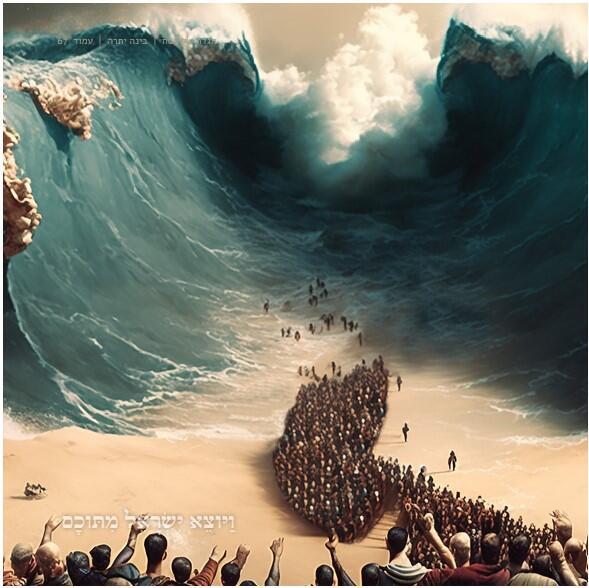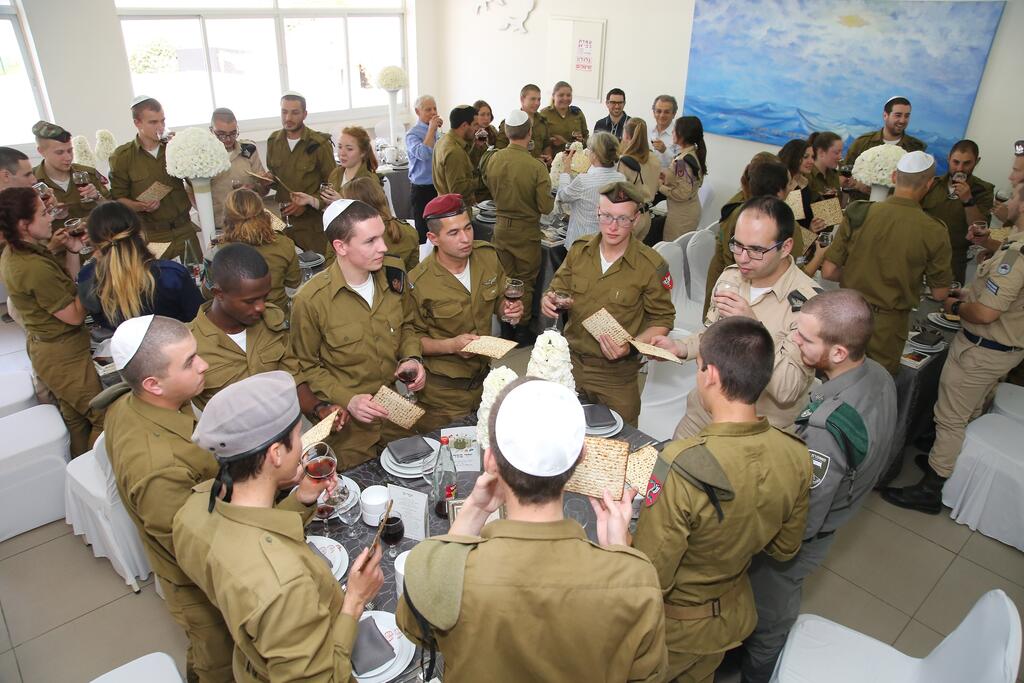Getting your Trinity Audio player ready...
In the final moments of the Seder night, we say one last piyut that summarizes the long journey we have traveled from the bitter days of exile in Egypt, through the miraculous story of redemption, of which at each of its chapters we say "Dayenu,” that would have been enough.
This piyut, written by the poet Rabbi Yosef ben Rabbi Shmuel Tuv Elem, from the sages of France in the 11th century, seeks to encapsulate in its eight short lines everything that was and everything that will be:
"The Seder is now completed in accordance with all of its laws, ordinances and statutes. Just as we were found worthy to perform it, so may we be worthy to do so in the future. O Pure One, who dwells on high, raise up the congregation that is without number. Soon may You guide the offshoots of Your plants, redeemed to Zion with joy."
"The Seder is now completed in accordance with all of its laws" - we declare with uplifted spirits, and we pray that also in the coming years, "Just as we were found worthy to perform it, so may we be worthy to do so in the future." But precisely in these moments of joy, we choose to remind ourselves that even if we have individually had the privilege to conduct the Seder night within the family, in peace and prosperity – there are many others who have not had these moments. At the peak moment of the festival of freedom, we remind ourselves and the Master of the Universe of those who are not free and pray for the return of the captives, "Redeemed to Zion with joy."
Since Simchat Torah 5784 (October 7), there hasn't been a day when prayers haven't been said at the Western Wall with a broken heart for the release of those who are still, to our great horror, in the hands of the cruel enemy in Gaza. There isn't a day when we don't hope for a miracle to soften the cruel hearts of the captors of the elderly and the young, men and women. The prayers held at the Western Wall for the sake of the hostages were among the most powerful events I have experienced at the Western Wall, and may the heavens open to our prayers.
But until then, heaven forbid that we forget even for a moment that our freedom will never be complete as long as one of our brothers or sisters is not free. On this Seder night, we turn to the marvelous story of our people and draw comfort and strength from it, we remember all the tribulations our people have endured and along with them, also the great salvations. We embrace the families of the hostages, the families of the wounded, and the bereaved families, with complete faith that, "The Strength of Israel will neither lie nor repent, for he is not a man to repent.”
During the struggle for the liberation of Soviet Jewry, it was customary to leave an empty seat at the Seder table, until our sisters and brothers return home. 133 empty seats are waiting in our hearts now. Please, God – bring salvation!
Rabbi Shmuel Rabinowitz is the rabbi of the Western Wall and Holy Sites in Jerusalem



